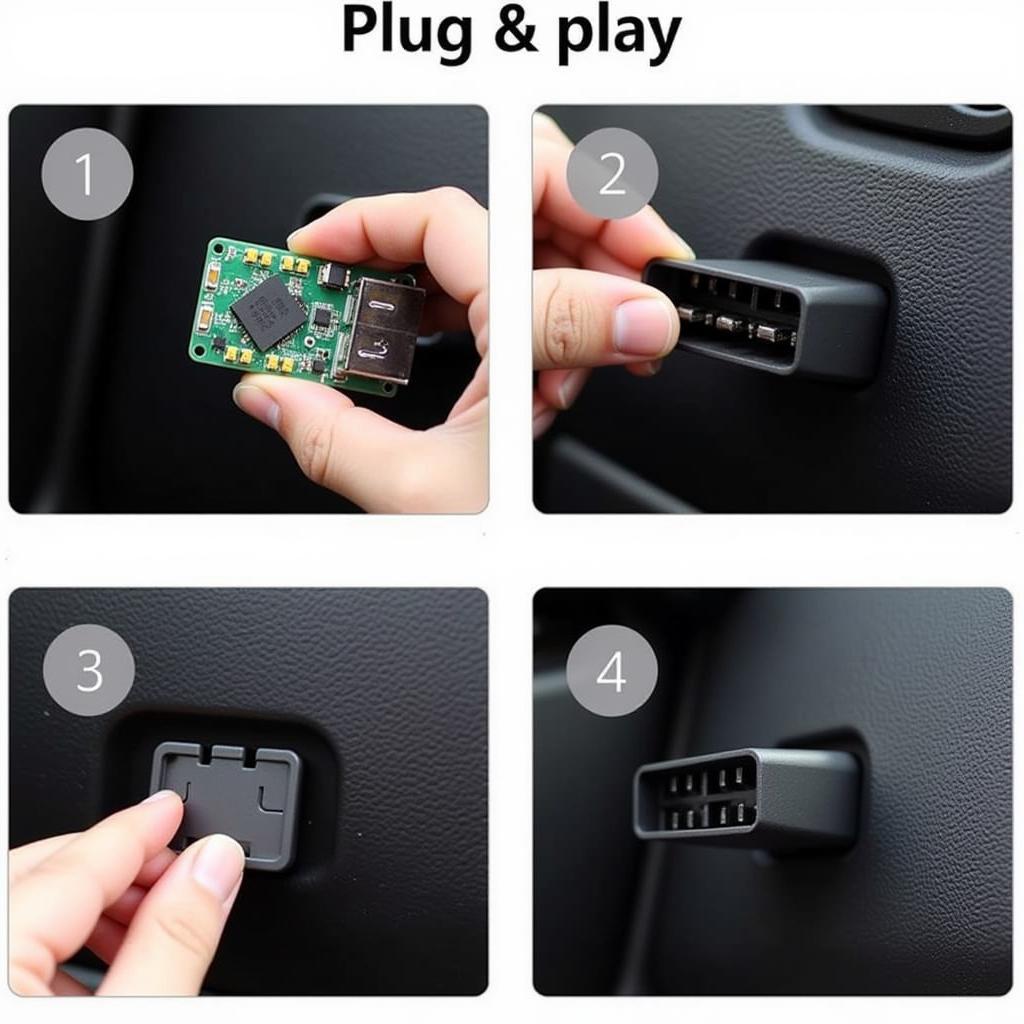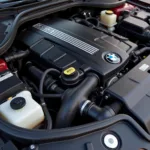The internet is abuzz with promises of performance enhancement and fuel efficiency through simple plug-and-play devices like the Nitro OBD2 chip. But do these chips really live up to the hype? As leading OBD2 scanner experts, we’re here to break down the truth about Nitro OBD2 chips and help you make informed decisions about your vehicle’s performance.
Understanding OBD2 Chips and Their Limitations
Before we delve into the specifics of Nitro OBD2 chips, let’s clarify what OBD2 scanners and chips actually do. OBD2 stands for On-Board Diagnostics, and the port in your vehicle allows access to its engine control unit (ECU).
Think of your car’s ECU as its brain. It receives data from various sensors throughout the engine and adjusts parameters like fuel injection timing and air-to-fuel ratio to optimize performance and emissions.
OBD2 scanners retrieve this data, providing valuable insights into your vehicle’s health. However, OBD2 chips marketed as performance enhancers claim to modify this data to trick the ECU into altering engine performance.
The Truth About Performance Chips
While the idea of a simple chip unlocking hidden horsepower might sound tempting, the reality is far more complex. Car manufacturers invest significant resources in optimizing engine performance for a balance of power, fuel efficiency, and emissions compliance.
Reputable performance tuning involves a deep understanding of engine mechanics and sophisticated remapping of the ECU’s software, usually performed by experienced technicians.
Can a generic chip replicate this complexity and tailor itself to your specific vehicle? It’s highly unlikely.
Potential Risks of Using Nitro OBD2 Chips
Beyond the questionable performance gains, using unverified OBD2 chips like the Nitro chip can pose risks to your vehicle:
- Voiding Your Warranty: Installing aftermarket devices that alter your engine’s parameters could void your manufacturer’s warranty.
- Engine Damage: Inaccurate data manipulation could lead to improper engine operation, potentially causing damage over time.
- Increased Emissions: Bypassing factory-set emissions controls could result in your vehicle exceeding legal limits.
What Nitro OBD2 Chips Might Do
While Nitro OBD2 chips are unlikely to deliver substantial performance enhancements, they might bring about subtle changes you could perceive as improvements:
- Throttle Response: Some users report a more sensitive throttle response, making the car feel peppier. However, this could also be a placebo effect or a result of altered (and potentially detrimental) engine timing.
- Fuel Efficiency Changes: Slight variations in fuel consumption are possible but are unlikely to be significant or consistent.
Making Informed Decisions About Your Car’s Performance
“As tempting as quick and easy performance solutions seem, a deep dive into the technology reveals they often fall short of their promises,” says automotive engineer and OBD2 diagnostics expert, Dr. Emily Carter. “Focus on proven methods like regular maintenance, high-quality fuel, and professional tuning for reliable and safe performance enhancements.”
Instead of relying on unsubstantiated claims, consider proven methods for improving your car’s performance:
- Regular Maintenance: Ensure your engine is running optimally with timely oil changes, air filter replacements, and spark plug checks.
- High-Quality Fuel: Using the recommended octane rating for your vehicle can improve combustion efficiency.
- Professional Tuning: Consult reputable tuners who can customize your ECU’s mapping for safe and effective performance gains.
Conclusion
While the allure of the Nitro OBD2 chip and its promised performance gains is enticing, it’s crucial to approach such claims with healthy skepticism. Our analysis suggests that these chips are unlikely to deliver the dramatic results advertised.
Instead of risking potential damage to your vehicle or voiding your warranty, prioritize proven methods like regular maintenance and professional tuning. Remember, when it comes to your car’s performance, it’s always best to rely on reliable information and established practices.
FAQs
1. Will a Nitro OBD2 chip damage my car?
While unlikely to cause immediate damage, using unverified chips could lead to long-term engine problems due to inaccurate data modification.
2. Can I remove the Nitro OBD2 chip after installation?
Yes, these chips are typically plug-and-play, so you can remove them. However, it’s essential to ensure doing so resets any modifications made to your ECU.
3. Are there any safe OBD2 performance enhancers?
Reputable performance tuners use professional-grade OBD2 equipment to modify ECU mapping safely and effectively.
4. What are the best ways to improve my car’s fuel efficiency?
Ensuring proper tire pressure, reducing unnecessary cargo weight, and adopting fuel-efficient driving habits can significantly impact your mileage.
5. Does using premium gas benefit my car even if it’s not required?
While not always necessary, using premium fuel in engines designed for it can enhance performance and fuel economy in some cases.
Need More Help?
For expert advice and top-quality OBD2 scanners, visit OBDFree. We offer in-depth reviews, helpful guides, and reliable information to help you make the best decisions for your vehicle. Contact our 24/7 customer support team via WhatsApp: +1(641)206-8880 or Email: [email protected] for personalized assistance.


